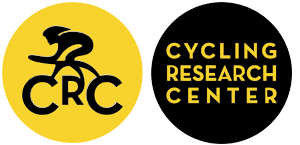Effect of feedback on cycling performance in a 4‐kilometres laboratory time trial
Abstract
Background: Nowadays performance data (e.g. power, speed, cadence) are available to cyclists in real time. The availability and manipulation of the data can be used to change activity parameters (e.g. pedaling dynamics) (Bibbo et al., 2012: Image Processing: Algorithms and Systems X; and Parallel Processing Imaging Applications II, Conference Volume 8295) or be used to, by introducing a deception component, access metabolic reserves (Stone et al., 2011: Medicine & Science in Sports & Exercise, 44(3), 534 541). To date the effect of feedback has mainly been analysed based on a deception component. However, the effect of removing the feedback altogether on performance has not been reported.
Purpose: The aim of this study was to investigate the effect of feedback on performance for a 4-‐kilometres-time trial.
Methods: 6 male trained cyclists each completed two 4‐kilometre time trials. The first time trial was carried out without any feedback (no feedback) other than a start/stop command. The second time trial was carried out with feedback (feedback), feedback variables being power, cadence, time and heart rate. On both tests these same variables were measured.
Results: on average the improvement between the total time with feedback compared with no feedback was 3.03%. Out of all the athletes only one performed worse with feedback than with no feedback however, the decrease was of less than 1% (see Figure 1). For all the measured variables (i.e. power, cadence, speed, time and heart rate) there was a significant difference (p < 0.05) between feedback and no feedback. In general, the effect observed due to the feedback was improved performance illustrated by a greater number of values towards the upper end of the variable’s confidence interval for each distance interval (e.g. kilometre 1, kilometre 3). An example of this behaviour is shown in Figure 2, although the speed median for both the feedback and no feedback conditions are similar for all intervals, during the feedback test the 75% quantile has a increased value and width (e.g. for kilometre 3 with feedback the difference between the median and the 75% quantile is 1.12 km/h while for no feedback it is 1.08 km/h). Two different pacing strategies (i.e. negative split, positive split) were observed when no feedback was employed. Performance with feedback followed a parabolic shape in which the time per kilometre increased to a maximum on the 3rd kilometre and decreased on the 4th kilometre (see Figure 3). This pacing strategy was also seen in other the cases where the improvements in time were observed but the times per kilometre describing the parabola fell below the negative split times observed during the no feedback test (see Figure 3B).
Discussion: There is no need for a deception component in order for feedback to have a positive impact on performance in a 4 kilometre time trial. Our findings show that feedback by itself allows a considerable improvement on performance. Irrespective of the pacing strategy followed during the no feedback test, the availability of feedback helped to achieve a higher sustained pace. Feedback served to increase the mean value of the variables for each interval and to keep a positively skewed distribution within each time interval.
Conclusion: The availability of feedback by itself helps to increase performance on a time trial. The effect of feedback can be seen on the pacing strategy followed, with an increase in time per kilometre up to the 3th kilometre and a decrease for the 4th kilometre, and on the positively skewed distribution for each variable within each time interval.
Downloads
Published
How to Cite
Issue
Section
Copyright (c) 2015 Journal of Science and Cycling

This work is licensed under a Creative Commons Attribution-NonCommercial 4.0 International License.
Authors contributing to Journal of Science and Cycling agree to publish their articles under a Creative Commons CC BY-NC-ND license, allowing third parties to copy and redistribute the material in any medium or format, and to remix, transform, and build upon the material, for any purpose, even commercially, under the condition that appropriate credit is given, that a link to the license is provided, and that you indicate if changes were made. You may do so in any reasonable manner, but not in any way that suggests the licensor endorses you or your use.
Authors retain copyright of their work, with first publication rights granted to Cycling Research Center.






